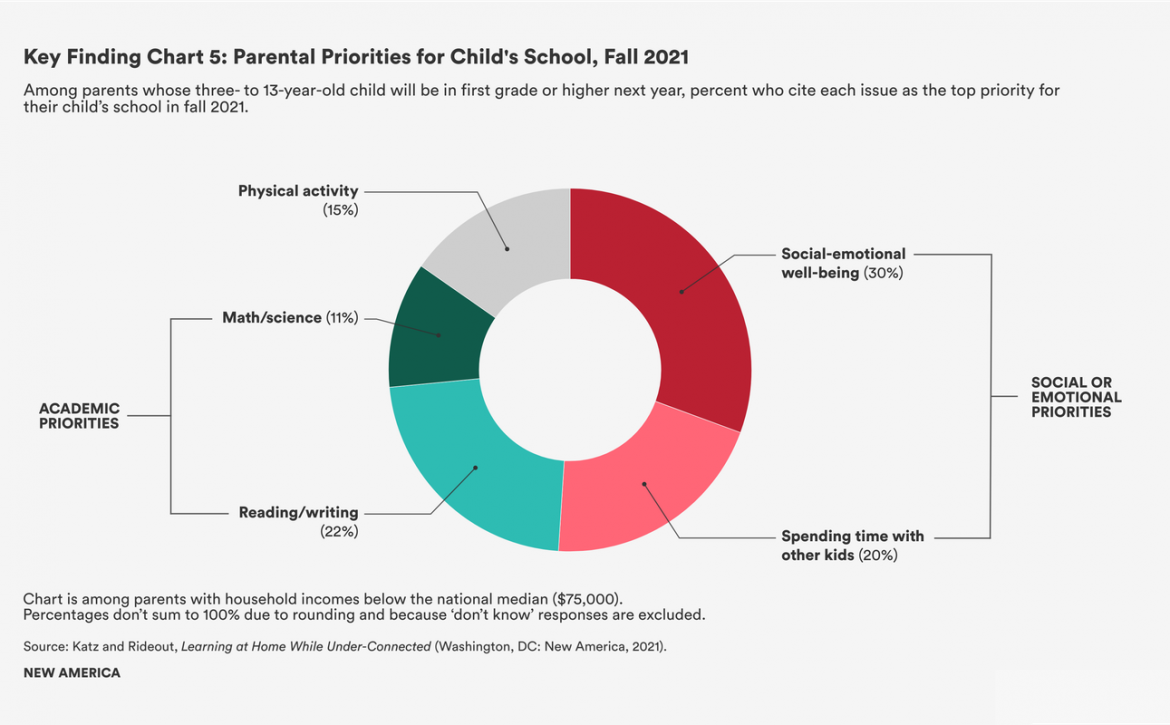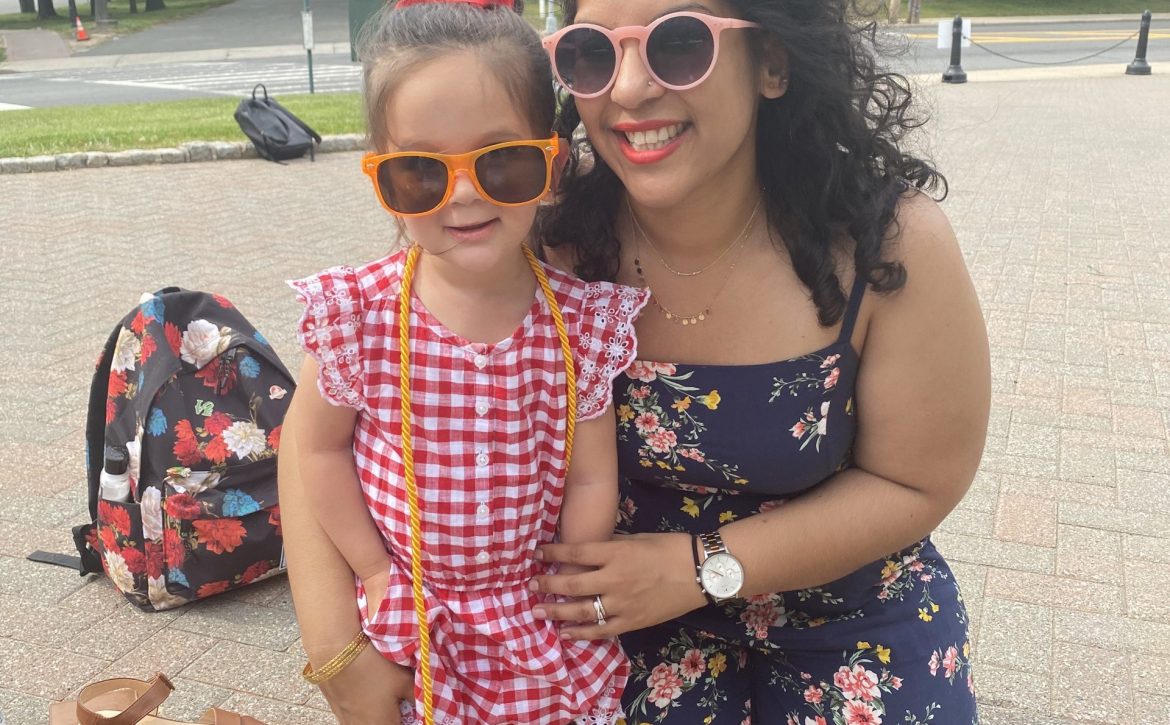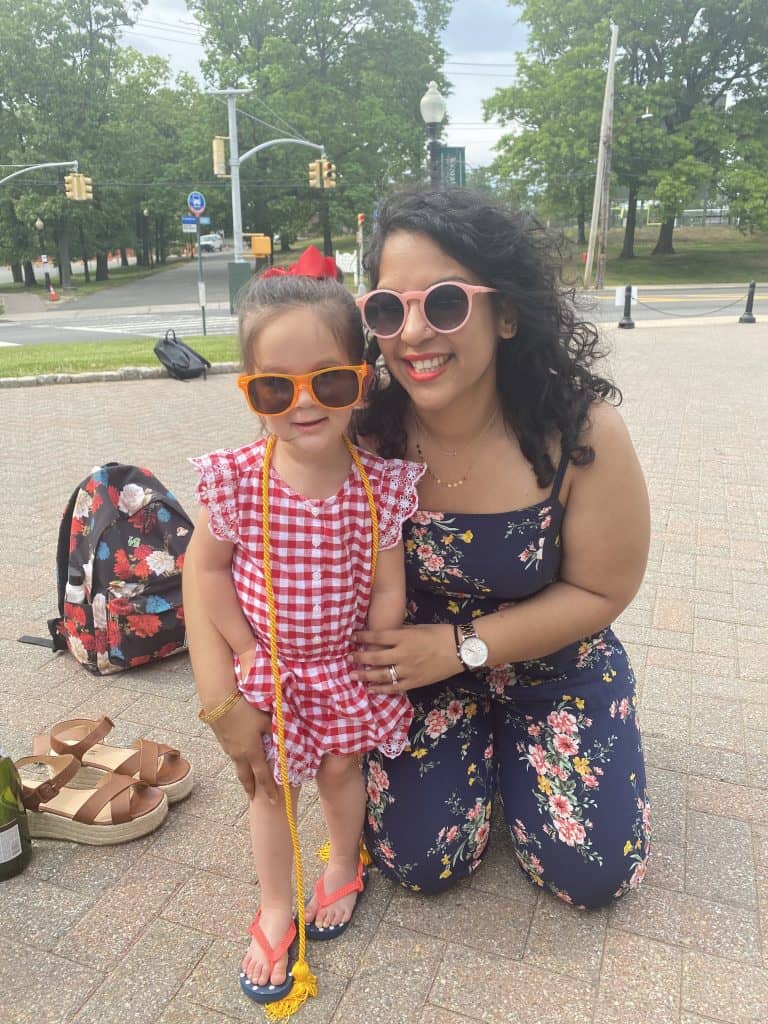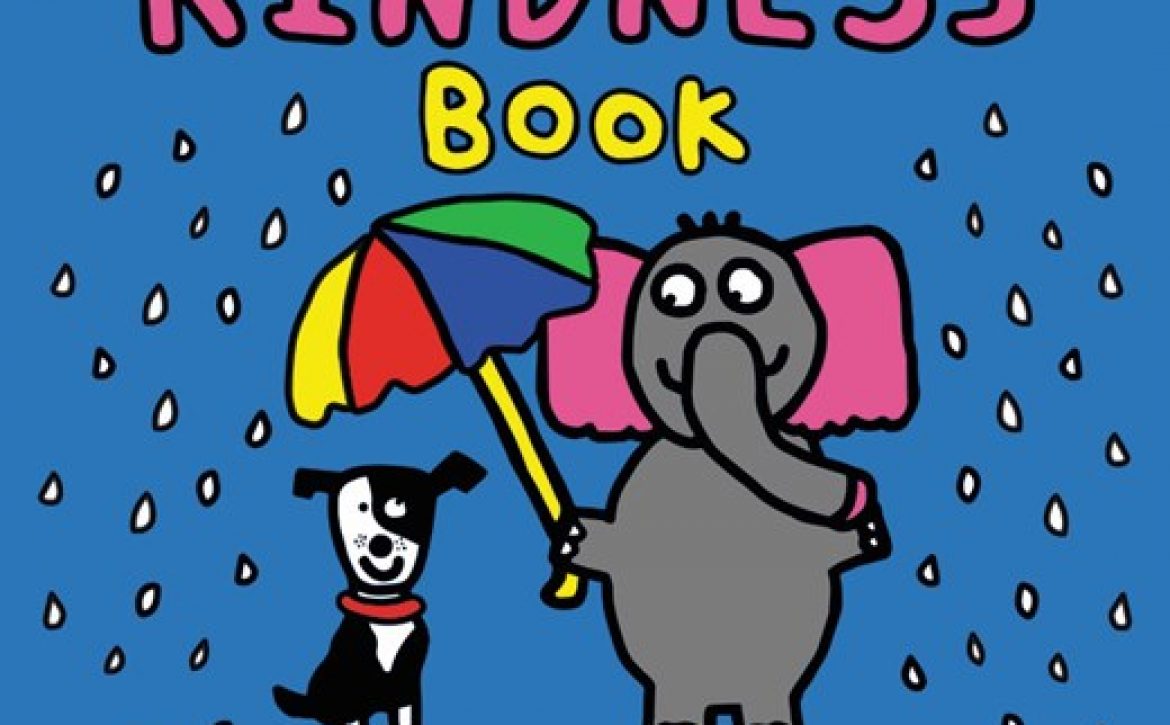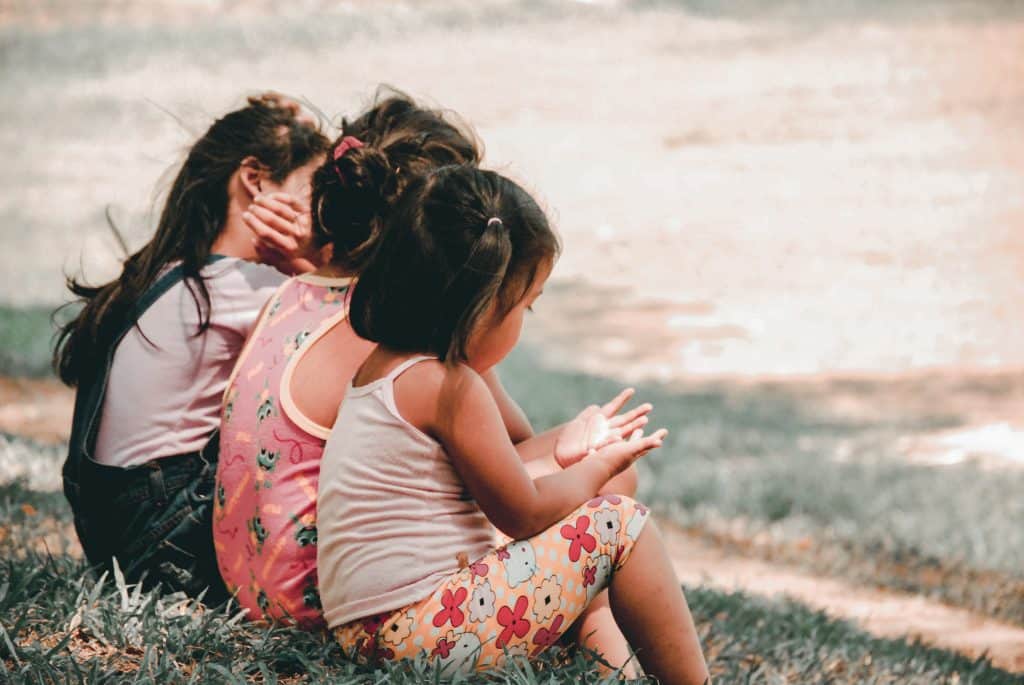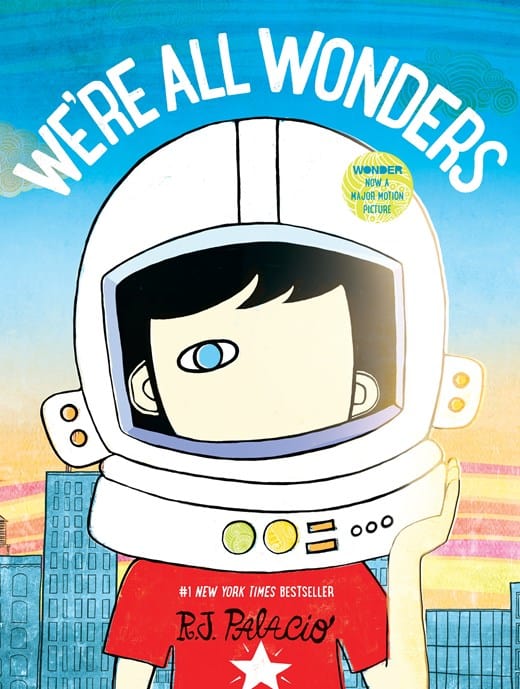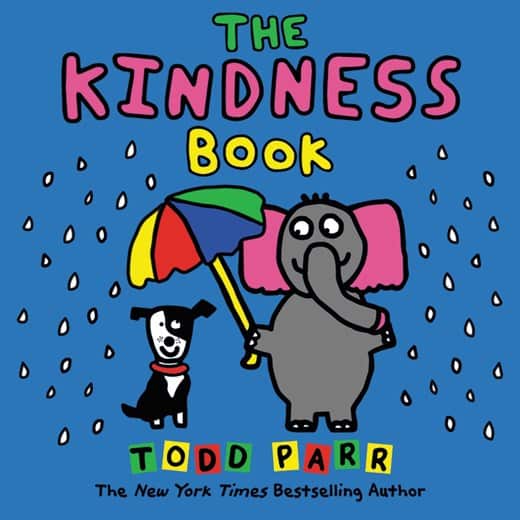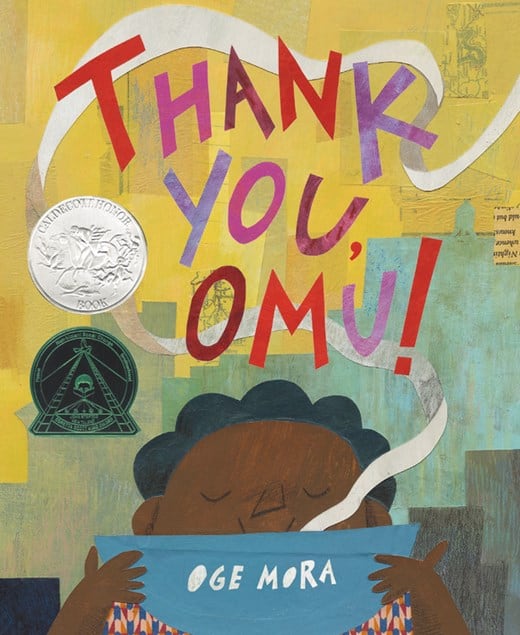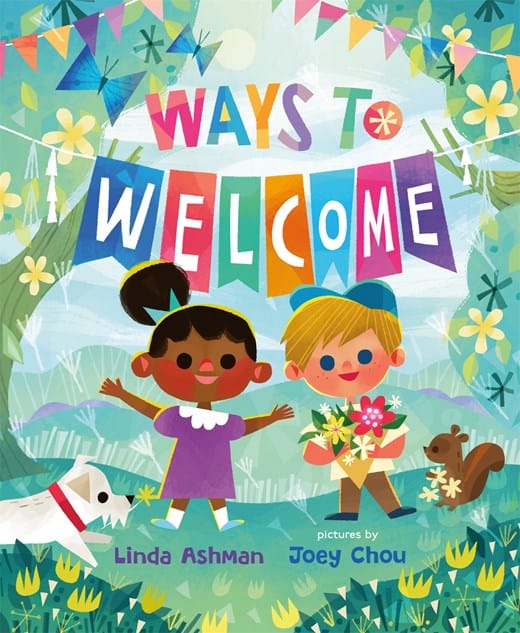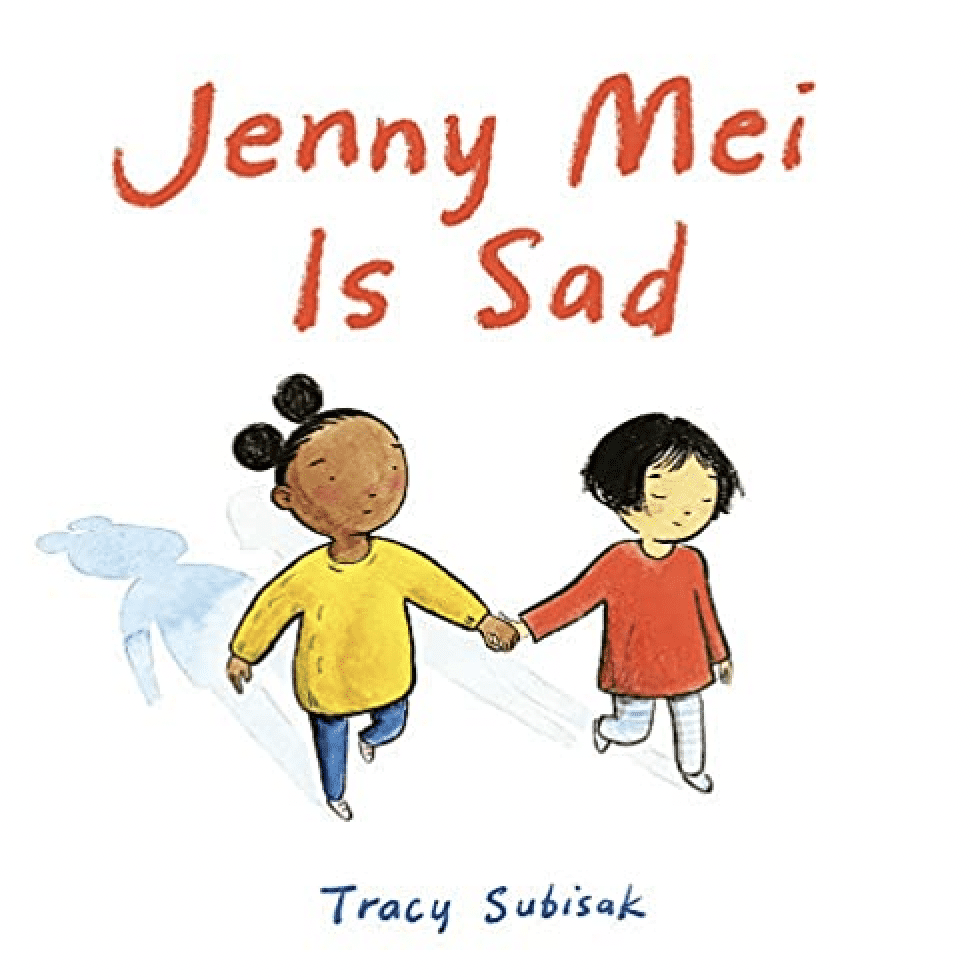Parents Rank Kids’ Social and Emotional Learning As Top Priority for Coming School Year
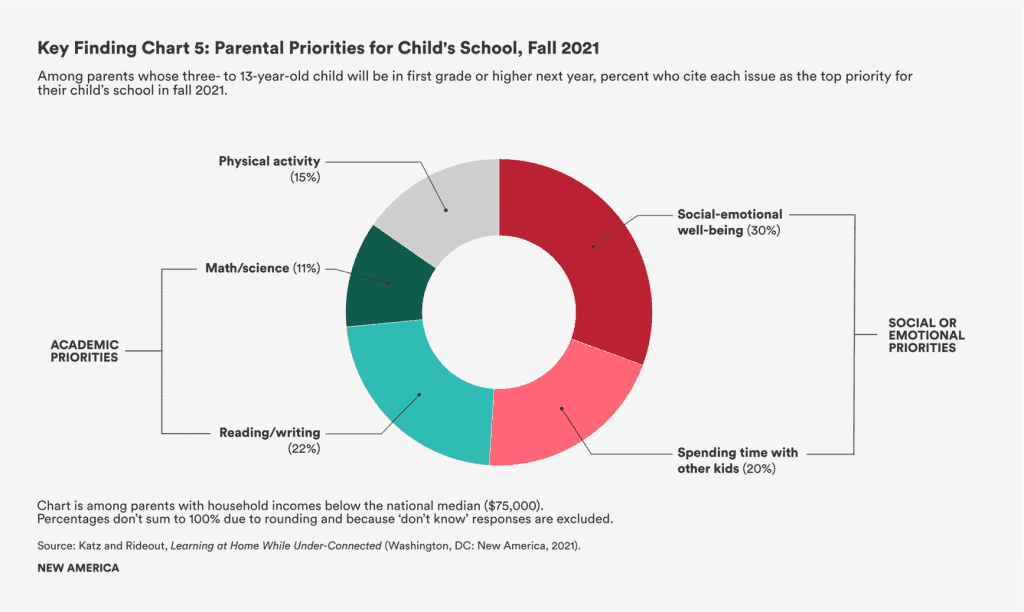
Six in ten U.S. parents say their top concern for the coming school year is their child’s social and emotional wellness, about double the percentage of parents who voiced concerns about their children’s academic learning, according to a new national survey.
Vikki Katz, a mother of two young children and a professor at Rutgers University, who led the study, Learning at Home While Under-connected, said parents’ concerns for their children centered around helping their children readjust to school, express their feelings, develop relationships — both with peers and with teachers — and get used to structure again.
“Every parent’s primary concern is that their children be well and that their children be happy,” she said. “Up and down the socioeconomic spectrum this year, parents have watched their children be lonely and sad and scared, and felt powerless to really make things better for them. A return to school, symbolically, is a return to something they recognize as more normal and that their children will recognize as more normal.”
Parents Look to Support Children's Social and Emotional Wellness As We Move Toward the 2021-22 School Year

She said many parents found it possible to approximate academic learning at home: children could practice their shapes, numbers, colors, and early literacy skills.
But interrupted in-person school paused social and emotional learning. Socialization and relationship building cannot be replaced at home — especially for young children who can’t interact with peers on the phone or play with each other via video chat.
Dr. Katz said as parents look toward the fall, many are using educational media to explain the pandemic and big questions to their children; this is especially true among families who are more “under-connected.”
She said many families are also starting to ease their children back into more “normal” social settings to start the process of learning (or re-learning) lessons like sharing, cooperating, and understanding how to express different feelings: “All of the kinds of relationships that make a childhood are slowly returning. So whether it’s in the form of formal structures this summer — childcare, camp, etc. — or whether it’s just spending time with cousins and extended family members, all of these are things that both children and adults have been craving.”

